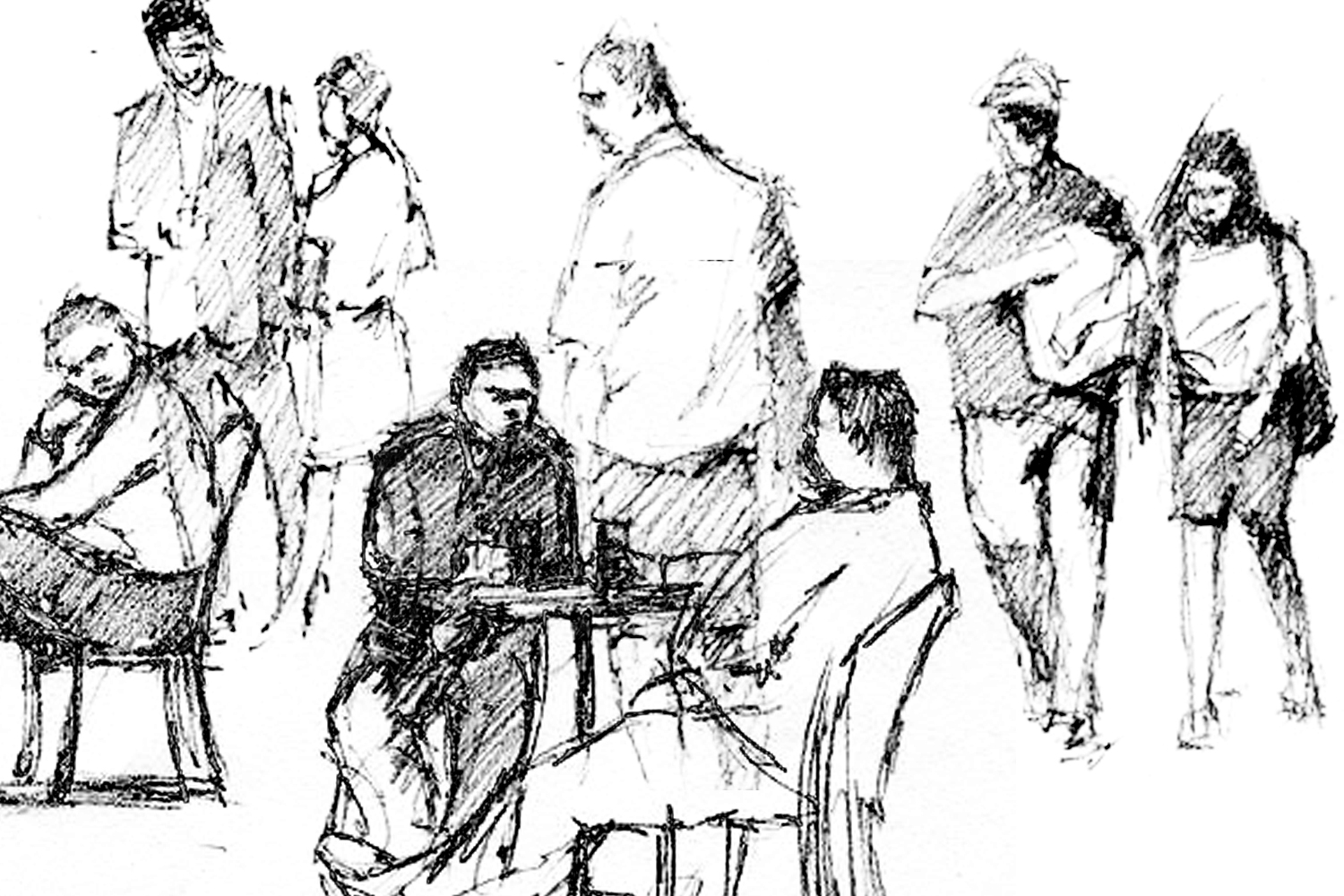
January 14, 2021
On Red Flags in the university context:
Just recently, a friend told me about an incident that happened years ago between her and her former student assistant colleague. "You know, he looked at me and, out of nowhere, said he'd love to see some nice breasts in the office." I’m taken aback. What did he say?! "He was always like that. Luckily, I don’t work with him anymore," is her response to my look.

I constantly find that victims of sexual harassment remain silent or laugh off strange situations and inappropriate comments. Often, they are the ones silencing themselves because "it wasn’t meant that way," and they don’t want to cause unnecessary drama. Sexual harassment happens far more frequently among friends than people realize. In such cases, victims are even less sure of how to handle it. The biggest fear is not being believed since most situations can’t be proven after the fact, leading to "he said, she said" scenarios. "Victim blaming" is also common in these cases – the reversal of the victim-perpetrator roles, where the victim is accused of inaction or provocation, and the actual offense is downplayed. Perhaps the victim isn’t fully aware of their situation because sexual harassment only happens when someone touches you without permission, right? Or... not??
That’s obviously a rhetorical question. Sexual harassment doesn’t begin only with physical assault, though only sexual physical contact is punishable under criminal law (§184i StGB). In everyday life, sexual harassment starts with seemingly insignificant situations, such as inappropriate nicknames ("sweetie," "honey"), obscene jokes and gestures, intimate questions, or inappropriate invitations or suggestions. The accumulation of these small moments can clearly signal to the victim that their discomfort is not baseless. Discomfort – that’s the key point. If a situation makes you uncomfortable, it’s worth taking a closer look because: Flirting is fun. Sexual harassment is not.
To help sharpen this closer look, Sara Hassan and Juliette Sanchez-Lambert describe a Red Flag System in their book “There Are No Grey Zones”, which highlights patterns of sexual harassment.
I'd like to apply some of these red flags to the university context, as I suspect that some may recognize themselves in them:
The Beginner
As a first-year student, you are always a beginner — the name says it all. The same goes for starting a new job, where you take on this role as well. You don't "know the rules" yet and just want to make sure you don’t make any mistakes in this new phase of your life. This time is also full of growth, but be cautious if it comes paired with any of the following situations.
Dependencies
Due to differences in knowledge and the need for assistance from professors, mentors, or tutors, dependencies can arise that may seem to demand a form of compensation. This dependency affects behavior and limits the ability to act freely.
Power Dynamics
Instructors are responsible for evaluating your academic performance. Similarly, tutors during orientation week hold a position that is often "looked up to." An uneven power dynamic can shift the perception of something like a compliment, casting it in a different light. It may also make it harder to remove oneself from uncomfortable situations.
The "Nice Guy Syndrome"
If you're being harassed by someone who has a good reputation and is well-liked in their environment—like at a university—the credibility of the victim is more likely to be questioned. The mindset often follows, "XY would never do that." People might also trust the opinions and experiences of older students. Mistakes made by popular individuals tend to be forgiven without much reflection.
The Unspoken Sexist Culture
When starting university, you may find yourself surrounded by a new group of people whose dynamics are already established and might conflict with your personal boundaries. This could include commonly accepted sexual innuendos or excessive physical contact. Despite feeling uncomfortable, you may tolerate this behavior in order to "fit in" and avoid becoming unpopular.
Systematic Abusive Behavior
Lastly, here is a significant red flag that is not specific to the university context. It is not uncommon for sexual harassment to accompany psychological abuse. A repeated pattern can be observed here: Perpetrators give the person a special status and elevate them through compliments or similar actions, isolating the person in this way. Through a "hot and cold" game, they create emotional dependency. Ultimately, the person's perception is questioned and so thoroughly confused that they begin to doubt themselves. This is known as "gaslighting."
(For a detailed explanation of the red flag system and the systematic behavior of perpetrators, please refer to the content tips at the end of the text.)
I was once the person who silenced myself. With the red flags in mind, I hope to approach strange situations differently in the future. I will also be open to anyone who feels unsure about a situation or a comment. We all need to offer support to those affected by sexual harassment and address the issue.
What do you think?
University Point of Contact
Equal Opportunity Office
The FH Aachen has an Equal Opportunity Office that provides advice in cases of sexual discrimination, harassment, and violence. Here, you can also get information about complaint procedures and seek assistance. Each academic department has its own equal opportunity officer.
Tel.: +49 241 6009 51603
gleichstellung@fh-aachen.de
www.fh-aachen.de/hochschule/gleichstellung
You can also contact the designated advisor for your department, your student representative council (FSR), and us, the AStA.
Book "There Are No Gray Areas – Patterns of Sexual Harassment Recognized with the Red-Flag System"
Sara Hassan, Juliette Sanchez-Lambert
free PDF available at shop.oegbverlag.at/grauzonen-gibt-es-nicht
Video explanation on Mutual Consent
GONEASTRAfilms, English original by Blue Seat Studios
YouTube: Mutual Consent – as simple as tea
Do you have an interesting topic you'd like to report on? Whether you're a professional or a beginner – we're always happy to welcome new people who want to share their exciting topics with us.
Here you can access our event calendar. Sign up directly via 'Anni'!
Copyright 2024 - AStA FH Aachen